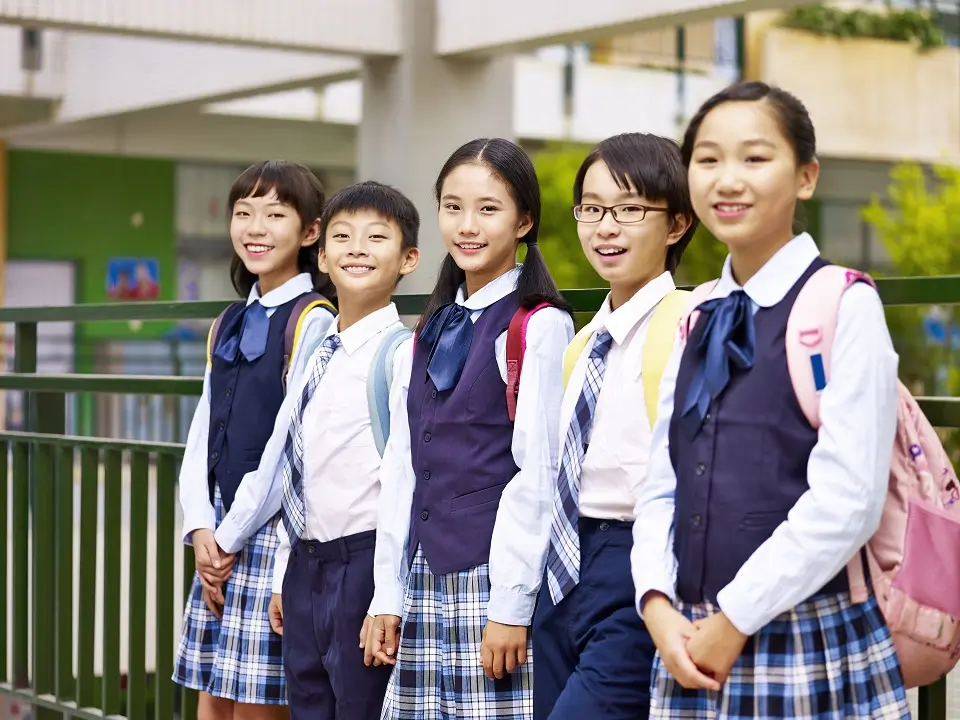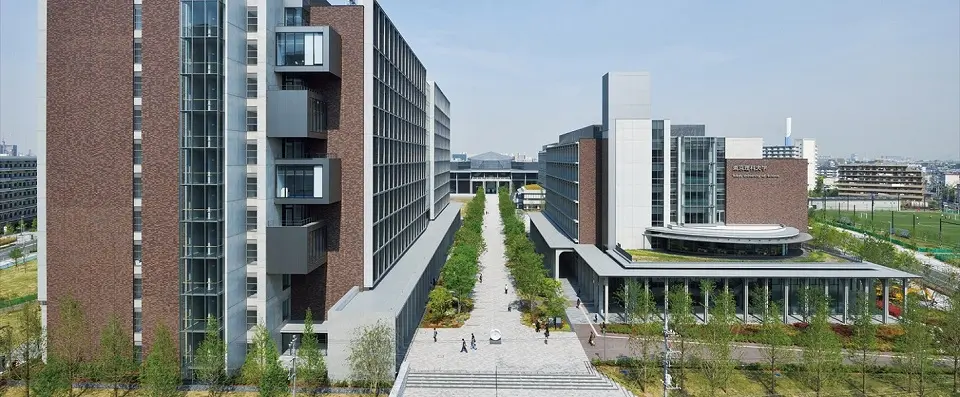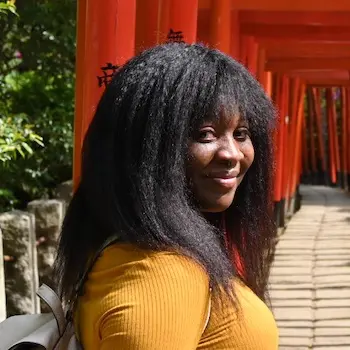Japanese Education System: School to Higher Education

Many of you reading this article would likely have finished university. However, it’s essential to understand the Japanese educational system, especially if you are in Japan or planning to move in with school-going kids or a foreigner looking for higher education in Japan.
Japanese School System
The Japanese school education system consists of 12 years, of which the first 9 years, from elementary school (6 years) to junior high school (3 years), are compulsory. After compulsory education, the next 3 years are for high school.
In Japan, compulsory education starts at age six and ends at age fifteen at the end of junior high school.
Japan performs quite well in its educational standards, and overall, school education in Japan is divided into five sections. These are as follows:
- Nursery school (hoikuen or 保育園) – Optional
- Kindergarten (youchien or 幼稚園) – Optional
- Elementary school (shōgakkō or 小学校) – Mandatory
- Junior high school (Chūgakkō or 中学校) – Mandatory
- High School (高校 or Kōkō) – Optional
Once students graduate from high school in Japan, they can opt for university (daigaku or 大学) or vocational school (senmongakkō or 専門学校) for higher education.
Cram Schools in Japan
Many Japanese students also attend cram school (“juku” or 塾) to catch up on the academic competition.
These are specialized schools that help students improve their grades or pass entrance examinations. These extended programs start after school, around 4 p.m., and, depending on the program, can end well into the evening.
Classes are held from Monday to Friday, with the occasional extra classes in schools on Saturdays. The school year starts in April and ends the following year in March.
Many Japanese schools have a three-semester system. These are as follows:
- First semester: From April to August
- Second semester: From September to December
- Third semester: From January to March
National and public primary and lower secondary Japanese schools do not charge tuition, making it essentially free for all students in Japan. Foreign children aren’t required to enroll in school in Japan, but they can also attend elementary and junior high school for free. Please check this guide for foreign students’ schooling in Japan.
However, if you wish to send your kids to international schools, you will need to pay a good amount of fees.

(Image credit: Ministry of Education, Culture, Sports, Science, and Technology (MEXT), Japan
Types of Japanese Schools and Ages
The typical age groups of students for elementary, junior high school, and high school in Japan are as follows:
- Elementary school for six years: (6 years old – 12 years old)
- Junior high school for three years (12 – 15 years old)
- High school for three years (15 – 18 years old)
Although high school isn’t compulsory, 99% of students nationwide pursue upper secondary education after graduating from junior high school.
There are public and private schools all across Japan. Public elementary and lower secondary schools are free, while private schools require much higher tuition fees.
All public schools are funded equally. Moreover, they have the same curriculum, and all schools have the same educational expectations nationwide. After World War II, education became more democratized to make education more accessible to low-income families.
International Schools in Japan
International schools have become more popular across Japan due to the rise of foreign residents in Japan.
While Japanese schools primarily instruct in Japanese, international schools have instructions in English. These schools are largely for children of expats and bicultural children; however, Japanese residents can also attend if they choose to. However, International schools are much more expensive than Japanese public schools.
There are many international schools across Japan, but not every school is accredited by the Ministry of Education. Some schools lack proper accreditations for Western standards as well. Therefore, if you’re interested in enrolling your children in an international school, you should do your research to make sure your children can pursue further education upon graduation.
Educational Facilities for Mentally Challenged
Physically and mentally challenged students can receive “special needs education.” This is called ‘tokubetsushienkyouiku’ (特別支援教育) and supports students in being self-reliant and enhancing their communication skills.
According to the National Institute of Special Education (NISE) 2022 report, 3.26% of the total number of students in Japan received special education in various forms. Children with more acute problems can attend specialized schools.
Most of these institutions are overseen by the local government and cater to children from kindergarten to senior high school.
Japanese School Curriculum
Students in Japan take all the basic subjects similar to those around the world. These basic subjects are math, science, Japanese, Physical Education (P.E.), Home Economics, and English. People might notice a difference between Japanese and Western schools focusing on etiquette and civics.
For the first three years of school, students don’t take exams. Therefore, the core focus of education is on establishing good manners and developing character. Students are taught to respect each other, be generous, and be kind to nature.
The curriculum becomes more academically focused once they enter the fourth grade.
Japanese education heavily emphasizes equality above everything else. While many schools in the West quickly adopt the latest technology to give their students the upper hand, most National and Public schools across Japan are very low-tech.
Basic information technology courses are offered in national and public schools in Japan, but students are generally not allowed to use electronic devices in the classroom. This is to ensure equality among all students, regardless of income level.
In some countries, if students fail to perform adequately, they will likely be held back from further improving their skills. However, in Japan, students always advance to the next grade regardless of their test scores or performance.
In Japan, even if students fail tests or skip classes, they can still join the graduation ceremony at the end of the year.
School Life in Japan
Schools across Japan don’t have a janitorial staff. Students spend 10-15 minutes cleaning the school at the end of the school day. Similarly, right before any vacation, they’ll spend 30 minutes to an hour cleaning.
Once your child becomes a student, you’ll likely notice that they’ll start spending much of their free time at school due to their club activities.
School club activities (bukatsu or 部活) are serious business in Japan. It’s a chance for students to create friendships and learn self-discipline, but they are known for taking up most students’ time. Students choose a club to join at the start of their first year, and they rarely change. Club activities happen all year round.
Aside from school clubs, students will have other activities throughout the year, such as sports day, school marathons, trips, and school festivals.
Each school is different in what sort of activities they have, but most schools will have a school festival. It’s a chance for students to work together and show off their talents to their families and friends in the area. It is usually the year’s biggest event, and students spend months preparing for the big day.
School Exams
Exams (shiken or 試験) are a serious part of the Japanese education system. They measure not only a student’s overall learning of the material but also the schools they’ll be able to attend, starting from elementary school.
Students who want to attend junior high school, high school, and university must take entrance exams to get into those schools. And, of course, the very best schools require the highest test scores.
University entrance exams in Japan can also be particularly tough. Every February, about half a million students across Japan sign up to take them. Students who pass can look forward to acceptance from the university they applied to.
After graduating from high school, students who fail to get admission to their desired academic institution for the next level of education are called Rōnin (浪人). Rōnin is an old Japanese term for a masterless samurai. Such students must study outside the school system for self-study to prepare for the entrance test during the next academic year.
However, the Ronin students have the option to take admission in yobikō (予備校). Yobiko is a privately run school that prepares students for college admissions.
Even if you fail to get admission during the next 2-3 years, you can keep preparing because even good universities will accept you once you pass the admission test.
The education system is changing slowly as foreign companies introduce their own customs and practices. Since many Western companies hire employees based on skill, experience, and personality rather than test scores, many schools have adapted to de-emphasize the need for testing.
Higher Education in Japan

After finishing high school, many students continue their higher education at a university or a vocational school in Japan.
There’s a saying that students study hard in high school to relax in university. Attendance often isn’t required in university. Unfortunately, since many students have to endure strict rules in high school, university is seen as a time of rebellion, at least for the first two years.
Many students start their job search (shuukatsu or 就活) at the start of their third year. It may look strange to some Westerners, but wearing black suits and changing their hair to its natural color are expected norms to secure a job upon graduation.
Vocational schools have also become more popular in Japan. These Japanese vocational schools are typically only two-year courses. These institutions focus more on teaching the skills needed for a specific occupation. Upon graduation, students are awarded the title of advanced professional.
University Programs in Japan
Bachelor’s Degrees
Bachelor’s degree programs gakushi (学士) last at least four years. However, degrees in medical dentistry, pharmacy, and veterinary program extend to six years.
Most universities start their academic year in April and end in March the following year. The first semester is from April to September, and the second is from October to March.
Some Japanese universities offer flexibility in when international students can start their program, depending on the area of research. Bachelor programs require at least 124 credits to complete.
Eligibility for a Bachelor’s program in Japan as an international student requires the applicant to have completed at least 12 years of formal education in their home country.
Those without a formal education must pass the National Entrance Examination Test. School transcripts, a personal statement, and one to two letters of recommendation are also required.
Since many international programs are taught in English, prospective students must have completed 12 years of education in English.
Students who don’t qualify must prove their English language proficiency through tests like TOEFL or IELTS.
Programs taught in Japanese are also available to international students. However, students must prove their Japanese language proficiency at an intermediate level through either the Examination for Japanese University Admission (EJU) or the JLPT (Japanese Language Proficiency Test).
Master’s Degrees in Japan
Master’s programs or shuushi (修士) in Japanese universities combine lectures, research, student projects, and a written dissertation.
To be eligible for a Master’s degree, you must have completed a four-year bachelor’s program.
Along with university transcripts, applicants will likely need two letters of recommendation, a resume, and an outline of the research proposal.
Master’s programs in Japan last for two years and require 30 course credits to be completed.
There are several Master’s programs available in English in sciences, humanities, arts, and education. Before applying, you must provide proof of language proficiency for non-native Japanese speakers interested in enrolling in a Japanese-instructed program.
Doctorate Degrees in Japan
Doctoral programs or hakase (博士) is the highest level of academic study available in Japan.
Japanese Ph.D. programs are based on quality research and high-tech teaching techniques. Most doctoral programs in Japan last for a minimum of three years. As in any other country, admission requires completing a bachelor’s and master’s degree.
Japanese Research Programs
Students who don’t meet the university’s initial qualifications or are only interested in conducting research can enroll as a research student or kenkyusei (研究生) at a graduate school of their choosing.
Students are not eligible for academic credit or a degree upon completion of their research; however, this is an ideal route for students interested in enrolling in graduate programs before fully committing to a program.
Many students use this to improve their Japanese language skills before applying. To become a research student, applicants must receive approval from a prospective advisor of the school they wish to attend.
Scholarship Opportunities for Higher Education in Japan
Compared to the cost of university in America and many other countries, university tuition in Japan is quite reasonable.
The average tuition fee for Japanese universities is about $10,000 per academic year, but it can vary depending on the school.
Many university students rely on their families for financial support, but that might not be possible for international students. Scholarships are quite rare in Japan, but several scholarships are available to international students for various programs.
An important help during your scholarship application process is the Japan Student Services Organization (JASSO). JASSO provides student services and is responsible for scholarships, study loans, and support for international students.
You may like to check the following links for more information about the scholarships for university education in Japan:
- Japanese Government (MEXT) Postgraduate Scholarships
- The Monbukagakusho Honors Scholarship for Privately Financed International Students
- Japanese Grant Aid for Human Resource Development Scholarship
- Asian Development Bank Japan Scholarship Program
- Scholarships available through JASSO
Individual institutions also offer merit-based scholarships for international students. Be sure to check with the student offices for their qualifications.
Higher Education in Japan for Foreigners
Japan’s reputation for high educational standards makes it a great choice for international students to pursue higher education in Japan.
Japan is home to an array of technological innovations with a mix of traditional cultures, making it an attractive choice for higher education.
Although it’s not well known, many universities in Japan offer programs for international students. These programs are available primarily in English but also offer students a chance to learn the Japanese language and customs. We do have an article about English university education in and around Tokyo.
Japanese universities offer programs for Bachelor’s, Master’s, and Doctorate degrees in many different areas of study.
Why Study in Japan?
Japan has held a strong reputation for being the center of technology and innovation for quite some time, which is well reflected in its universities.
International experience also gives applicants a competitive edge over their competition. More employers value international experience as it shows drive and willingness to experiment. If your end goal is to work in Japan, starting as an international student allows you the chance to build a professional network.
Despite Japan’s reputation as a monolithic culture, many opportunities exist for non-Japanese students to study for higher education in Japan. The reputation of Japanese universities is well reflected at each institution, so any program you choose will be well worth your time.
Conclusion About the Education System in Japan
Education in Japan may seem a little different compared to your own culture. However, there’s no need to be alarmed about the quality of education, as Japan is often cited for having a 99% literacy rate.
Despite its emphasis on testing, the Japanese education system has been successful. Its strong educational and societal values are admired worldwide and produce some of the most talented students.
Moreover, for higher education, Japan offers a good mix of traditional and modern university programs that testify to its rich academic history and innovative future.
These programs provide top-notch education and a unique opportunity for foreigners to immerse themselves in the Japanese culture and way of life.
Pursuing higher education in Japan can be a transformative experience, bridging gaps between the East and the West. Japanese universities are a compelling destination for those seeking an academic adventure filled with learning, discovery, and personal growth.
Furthermore, Japan is a good destination for higher education if you wish to take advantage of its career growth prospects. With a continuously increasing demand-supply of talent because of its aging and declining population, Japan is a good destination for career growth prospects. Having a college education in Japan helps in achieving that goal more efficiently.

Jamila Brown is a 5-year veteran in Japan working in the education and business sector. Jamila is currently transitioning into the digital marketing world in Japan. In her free time, she enjoys traveling and writing about the culture in Japan.
